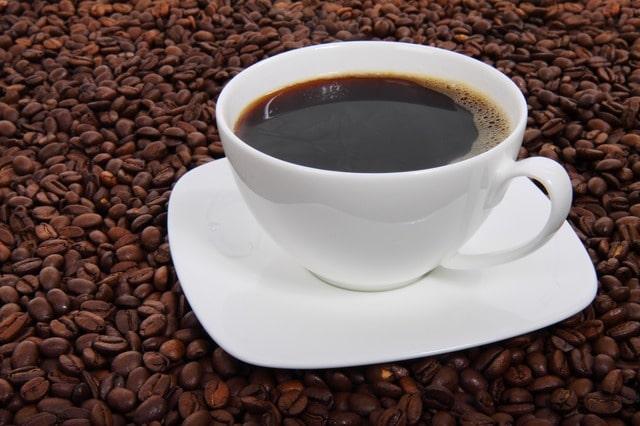A strong coffee, if consumed half an hour before aerobic exercise, significantly increases the fat-burning rate. The effect is more significant if the exercise is performed in the afternoon rather than in the morning, report scientists from the University of Granada (Ruiz-Moreno et al. 2020).
Coffee is one of the most popularly consumed drinks after water. Coffee contains a chemical called caffeine which is long known for its modulatory effects on cognitive and physical performance.
The chemical is unregulated and considered as generally recognized as safe (GRAS) by the US Food and Drug Administration. Because of its high content in beverages like coffee, tea, or soft drink, the chemical has become the most widely consumed drug globally.

Per capita caffeine consumption averages about 75 mg/person/day worldwide. However, average US citizens consume 165±1 mg/per day, which was about 226±2 mg/day, the highest, in the consumer aged 50-60 (Mitchell et al. 2014). The Scandinavians, on the other hand, exceed rates of caffeine consumption 400 mg/person/day (Gilbert 1984).
Caffeine Boosts Physical Performances
Caffeine enhances both cognitive and physical performance. By inhibiting the action of adenosine on its receptor, caffeine prevents adenosine-induced drowsiness—the known mechanism of action to explain the effects of caffeine. Caffeine also stimulates thermogenesis and fat oxidation through inhibition of phosphodiesterase, an enzyme that degrades intracellular cyclic AMP and antagonism of the negative modulatory effect of adenosine on increased noradrenaline release (Dulloo et al. 1992).
More Read
Caffeine or caffeine-rich beverage consumption has long been known to boost performance during physical exercise. In 1978, as reported by Costill et al. 330 mg of caffeine ingestion 60 min before the exercise increases fat utilization and reduced glycogenolysis (Costill et al. 1978).
Several clinical trials during the ’90s have shown that caffeine consumption stimulates thermogenesis and fat oxidation (Dulloo et al. 1989, Astrup et al. 1990, Bracco et al. 1995) in humans.
The relevant research on coffee and caffeine-rich beverages examining the efficacy of caffeine consumption on whole-body substrate oxidation at different phases of physical activity has shown an increasing trend in recent years.
For example, results from a double-blind, randomized, and counterbalanced experiment involving 12 healthy participants suggest that a moderate caffeine dose (3 mg/kg) increases the amount of fat oxidized during one h of cycling (Ruiz-Moreno et al. 2020).
A systemic review in 2020 that included 19 studies published between 1978 and 2020 also showed that more than 3.0 mg/kg is necessary to obtain a statistically significant effect of this stimulant on fat oxidation during exercise (Collado-Mateo et al. 2020).

A study from the University of Granada (UGR) has shown that consuming a strong coffee, equivalent to caffeine, about 3 mg/kg body weight half an hour before aerobic exercise significantly increases the fat-burning rate.
The researchers found that if the exercise is performed in the afternoon rather than in the morning, the effects of the coffee are more effective. The study results are published in the Journal of the International Society of Sports Nutrition (Ramirez-Maldonado et al. 2021).
New Study from the University of Granada
In the new study, 15 men (age: 32 +/- 7 years) were recruited. According to the study protocol, each participant completed an exercise test four times at seven-day intervals. All participants consumed coffee equivalent to caffeine 3 mg/kg body weight or a placebo at 8 am and 5 pm and completed the tests in all four conditions in random order.
The conditions, such as hours elapsed since last meal, physical exercise, or consumption of stimulant substances, before each exercise test were strictly standardized.
Maximal fat oxidation rate (MFO) and maximum oxygen uptake (VO2max) were measured by indirect calorimetry, and the intensity of exercise that elicited MFO (Fatmax) was calculated accordingly.
The results showed that Fatmax and VO2max were significantly higher in the afternoon than in the morning (all P < 0.05). Compared to the placebo, caffeine increased mean MFO by 10.7% in the morning and by a mean 29.0% in the afternoon. Caffeine also increased mean Fatmax by 11.1% in the morning and 13.1% in the afternoon.
Significance
“Our study showed that acute caffeine ingestion 30 minutes before performing an aerobic exercise test increased maximum fat oxidation during exercise regardless of the time of day,” explains Francisco J. Amaro.
“These results also show that caffeine increases fat oxidation during morning exercise in a similar way to that observed without caffeine intake in the afternoon” (Amaro-Gahete 2021).























